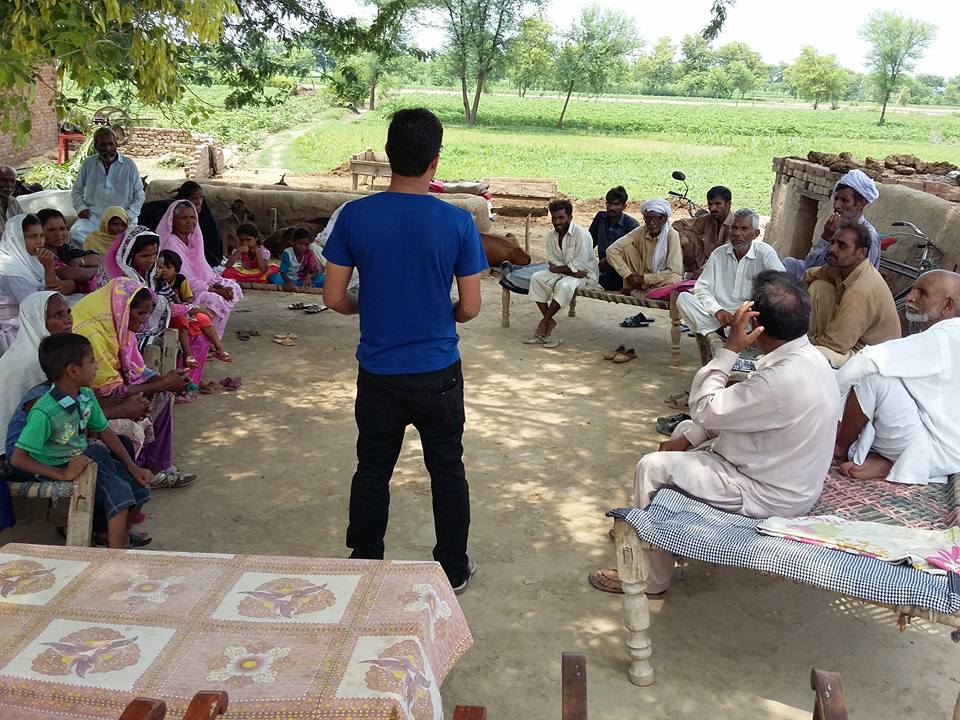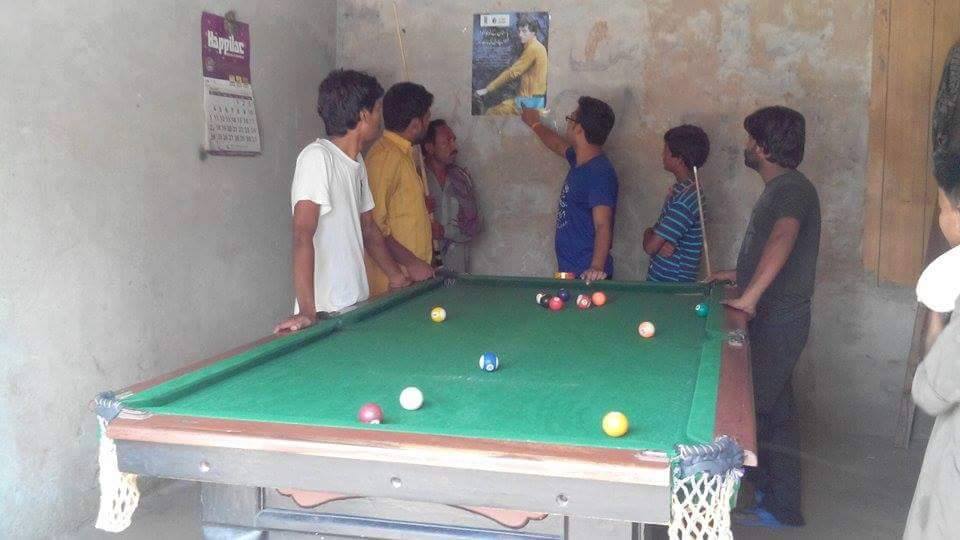NEWS
May 5, 2016

IN BRIEF
By: Mehwish Niaz, Accountability Lab Pakistan Accountapreneur “Engaging local governments in youth development through a holistic, iterative approach to policy formulation and execution, national governments can help promote youth civic engagement through a cohesive strategy that invests in young people as catalysts for sustainable growth.” How can we best encourage active citizenship? What does it take to build or rebuild a stronger sense of community on citizens’ rights in our local area? These questions continue to capture people’s imagination in Pakistan and beyond. We see this reflected in the popular narrative of ‘loss of community’, that tells us “things just […]
SHARE
By: Mehwish Niaz, Accountability Lab Pakistan Accountapreneur
“Engaging local governments in youth development through a holistic, iterative approach to policy formulation and execution, national governments can help promote youth civic engagement through a cohesive strategy that invests in young people as catalysts for sustainable growth.”
 How can we best encourage active citizenship? What does it take to build or rebuild a stronger sense of community on citizens’ rights in our local area? These questions continue to capture people’s imagination in Pakistan and beyond. We see this reflected in the popular narrative of ‘loss of community’, that tells us “things just ain’t like they used to be when we all used to look out for each other, when you knew your neighbors”. We see it on the policy stage in the continued commitment to localism. We also see it around the election process in the concern about perceived citizen apathy and disillusionment with the political system.
How can we best encourage active citizenship? What does it take to build or rebuild a stronger sense of community on citizens’ rights in our local area? These questions continue to capture people’s imagination in Pakistan and beyond. We see this reflected in the popular narrative of ‘loss of community’, that tells us “things just ain’t like they used to be when we all used to look out for each other, when you knew your neighbors”. We see it on the policy stage in the continued commitment to localism. We also see it around the election process in the concern about perceived citizen apathy and disillusionment with the political system.
The initiative I’m creating the through Accountability Incubator, a youth-driven accountability model known as “Voices of Civic Champions”, supports the preparation for—and practice of—youth participation in governance roles. The initiative targets both youth and adults, supporting each in developing the skills and knowledge they need to support this cause. We’re seeking both programmatic and systemic change. An underlying assumption of our work is that youth in governance is not a new program, it’s a new way of doing programs. It’s a youth development approach that can be integrated into any other program or activity, not only those focused on citizenship and leadership.
Voices of Civic Champions invites young people to participate in the democratic process through meaningful roles in public policy, planning, and decision-making—which can lead to improved outcomes for youth and the community. It also thrives in a climate of reciprocity and respect where young people, in partnership with adults, are prepared and supported to tackle relevant issues and effect change. Mentors with different civic participatory backgrounds teach them how to get involved in a meaningful way.
Civic Champions stand out as advocates for human rights, active citizenship, and holding the government accountable. Every Civic Champion is an agent of change to bring their local issues into the limelight.
Rizwan Shaukat, a Civic Champion from Khanewal shares, “I believe youth affairs are a devolved subject and each provincial government is taking steps to work on it. However, I believe, given Pakistan has a 60% youth bulge, we need to prioritize this subject at the federal level. Setting up a Youth Ministry would be a good start. The Civic Champions initiative has given us an opportunity to work in close collaboration with the government. I would highly encourage myself and my community to set up counseling centers all over Pakistan to guide students in their institutions on their rights and role to strengthen accountability at all levels. It will go a long way to change the direction of the country. Youth also should instead be involved in leadership programs at community level to ensure their presence and voice in policy. They can shadow or train alongside with Parliamentarians and Senators, and in the long run also contest for elections.”
How do we motivate youth to want to participate?
Basically, youth motivate themselves and other youth. The role of adults is to set the stage for that motivation to happen. It is important to engage youth in topics that interest and excite them and to frame issues in a way that is concrete and relates to their world. Some of the best support for youth participation can come from teachers, youth workers, coaches, other adult allies and parents. Many times these trusted adults can inspire youth participation in an event just by the way they describe it. Other ideas that can get youth in the door include food, door prizes for open meetings and extra school credit for committee work. Leaders seeking to engage youth can also make sure it will be worth their while when they get there. Youth are frustrated with traditional approaches. They need more dialogue and action than is afforded them within the school day. Their civic engagement experience needs to tap into their energy and innate interest in being of service. Another major reason of active and motivated youth is to have an easy approach to address to community. Holding rights awareness sessions within one house yard, talking to youth in a playground and adults in the fields risen the credibility and belonging of the civic champions within their communities.
get there. Youth are frustrated with traditional approaches. They need more dialogue and action than is afforded them within the school day. Their civic engagement experience needs to tap into their energy and innate interest in being of service. Another major reason of active and motivated youth is to have an easy approach to address to community. Holding rights awareness sessions within one house yard, talking to youth in a playground and adults in the fields risen the credibility and belonging of the civic champions within their communities.
The Four Pathways to Youth Engagement Involvement:
- Volunteering: Youth actively participate in volunteer opportunities and meetings initiated by adults, and have input on the strategies and day-to-day operations, or take on projects within ongoing city initiatives.
- Consultation: Adult officials create intentional settings, such as advisory groups, in which youth give input and advice .
- Representation: Selected youth gain the opportunity to participate in ongoing municipal work on behalf of their peers, with the ability to help set the agenda and vote on a government-sponsored activity.
- Shared leadership: Youth share positions of authority with adults as colleagues and share accountability for the goals and outcomes of the activity.
What impact have they made so far?
Our Civic Champions also initiated a “Connecting Volunteers” campaign, which provided a platform for community-based activists and concerned citizens to voice their initiatives. By capturing their efforts and sharing it through a blog and social media, they shared the efforts citizens are making to ensure accountability and citizenship at the micro level.
We set up photography workshops for Civic Champions to address the issues for accountability and authorities review—which enabled them to voice their concerns for their communities.
Our Civic Champions from Southern Punjab ran an effective participatory around voter awareness in the recent local government elections in Punjab. As a result, 10% of the candidates were youth, and 15 youth, women, and minority candidates won seats in their respective communities.
Our Civic Champions mentors supported a national event called the “National Volunteer Summit” to gather all community-based volunteers and mentors to exchange ideas on how to better the situation of governance through parallel support by citizens. We’ve also built connections between all parts of the country through exchange visits of Civic Champions. The assortment of citizenship education, digital media, connecting volunteers and mentoring is bringing out the best among the Civic Champions.
How can other youth become civic champions?
Youth can start by identifying basic issues that are important to them and increasing their knowledge of those issues through Internet research. Then, they can contact local and national organizations focused on those issues, to help them strategize action, as well as to develop the skills to navigate the adult-focused and often complicated world of government, policy and community resources.
